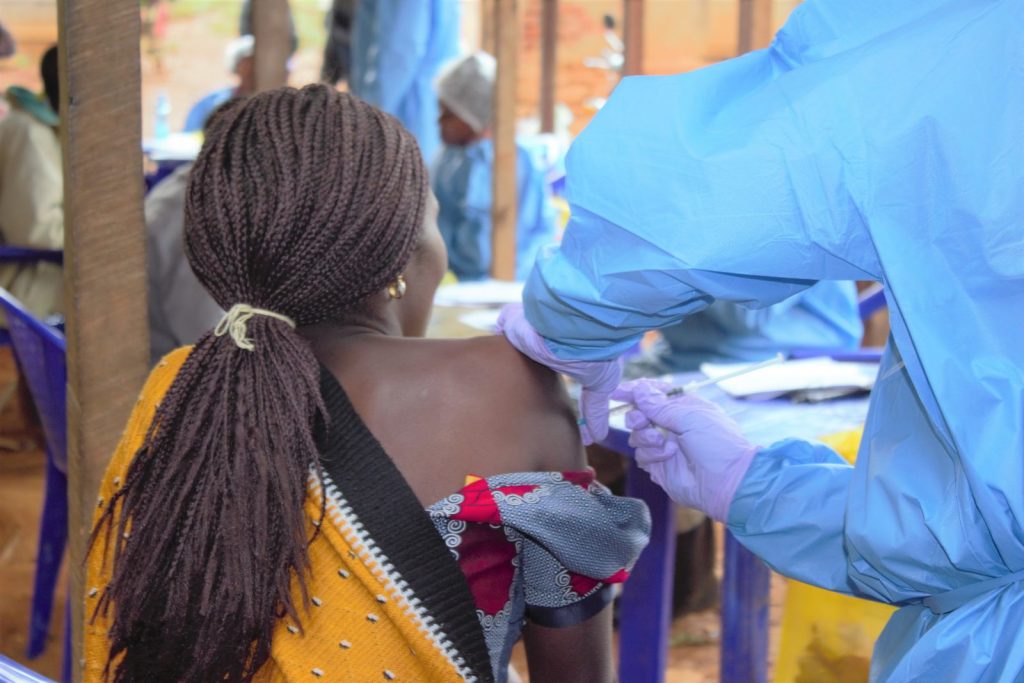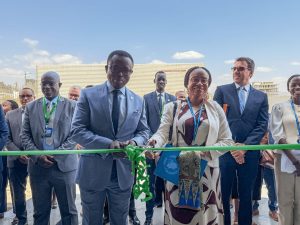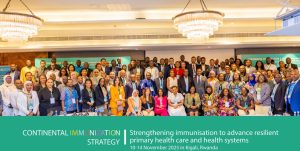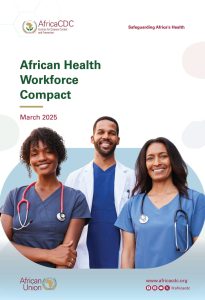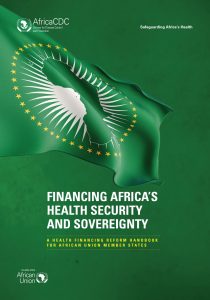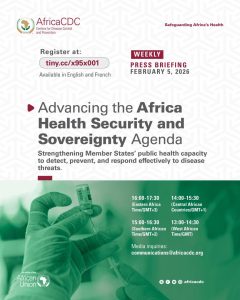ADDIS ABABA, ETHIOPIA, 17 DECEMBER 2020. A survey conducted by the Africa Centres for Disease Control and Prevention (Africa CDC), in partnership with the London School of Hygiene & Tropical Medicine (LSHTM) has shown that a predominant majority (79% average) of respondents in Africa would take a COVID-19 vaccine if it were deemed safe and effective.
Conducted between August and December 2020, the survey interviewed more than 15,000 adults, aged 18 years and above, across 15 African countries: Burkina Faso, Côte d’Ivoire, Democratic Republic of the Congo, Ethiopia, Gabon, Kenya, Malawi, Morocco, Niger, Nigeria, Senegal, South Africa, Sudan, Tunisia, and Uganda.
Data from the survey shows significant variations in willingness across countries and across the five regions in the continent, from 94% and 93%, respectively, in Ethiopia and Niger to 65% and 59%, respectively, in Senegal and the Democratic Republic of Congo.
Prior to the COVID-19 pandemic, there has been a global decline in vaccine acceptability and uptake because of doubts about efficacy and safety and the spread of misinformation about vaccines. The pandemic has further exacerbated controversies around vaccines as a preventive measure against infectious diseases.
The study was therefore conducted to investigate public knowledge and perceptions about the COVID-19 pandemic and COVID-19 vaccine, thus identifying knowledge gaps, cultural beliefs, and attitudes to inform interventions for pre-deployment of vaccines across the continent.
Overall, willingness, or not, to take a COVID-19 vaccine depended mostly on trust in vaccines as well as perceptions of its importance, safety and efficacy. Safety was of utmost consideration; on average 18% of respondents believed that vaccines generally are not safe and 25% percent believed that a COVID-19 vaccine would be unsafe. Some of the respondents expressed distrust for vaccines generally while others expressed distrust for a COVID-19 vaccine specifically.
Respondents who are older, those who know someone who has tested positive for COVID-19, and those who live in rural areas are more inclined to take a COVID-19 vaccine than younger people, those who have not seen COVID-19 affect anyone, and those living in urban areas.
Rejection of a COVID-19 vaccine appears to be linked to misinformation and disinformation, as most of those who said they would not take a vaccine believe that the disease is man-made, does not exist, or is exaggerated and does not pose a serious threat. Others think they are not at risk of being infected with the virus while some others believe that natural remedies and alternative medicines are safer than vaccines.
Individuals who have had a positive COVID-19 test and are now well believe that they do not need a vaccine because they think they have become immune to the disease and can no longer be infected.
Respondents generally mentioned the World Health Organisation (WHO), healthcare professionals, governments, pharmaceutical companies, Gavi, and Africa CDC as the trusted sources for approval in terms of safety and efficacy of a COVID-19 vaccine.
These findings highlight the critical need for strategic engagement at the community level to address the long-term disapproval for vaccines and hesitancy to take a COVID-19 vaccine among some segments of the population. It highlights the need for constructive education and awareness to provide essential information that will allow individuals to make informed decision to accept a COVID-19 vaccine.
“Engaging with communities and being responsive to their concerns and information needs around the COVID-19 vaccine will be crucial to building trust not only around COVID-19 vaccine, but for vaccines in general,” says Prof. Heidi Larson, study co-lead and Director of The Vaccine Confidence Project at London School of Hygiene & Tropical Medicine.
“This survey is an eye-opener that provides critical scientific evidence to guide interventions by Africa CDC, Member States and partners for optimization of COVID-19 vaccine uptake across the continent,” says Dr John Nkengasong, Director of Africa CDC.
About Africa CDC
Africa CDC is a specialized technical institution of the African Union that strengthens the capacity and capability of Africa’s public health institutions as well as partnerships to detect and respond quickly and effectively to disease threats and outbreaks, based on data-driven interventions and programmes. Learn more at: https://africacdc.org.
About the Vaccine Confidence Project
The Vaccine Confidence Project (VCP) founded in 2010 by Prof. Heidi Larson was developed in response to hesitancy and misinformation on vaccination programmes such as those that caused a boycott of polio eradication efforts in Northern Nigeria in 2003–04. It is an early-warning system to identify and evaluate public confidence in vaccines, with the purpose of tackling the problem early, when it is likely to be manageable. The Vaccine Confidence Project Team is an interdisciplinary and international group of researchers with expertise in anthropology, digital analytics, epidemiology, policy, psychology and more. Vaccine confidence is not a one-dimensional issue, and so the VCP™ cuts across disciplines to produce innovative research and policy recommendations. For further information click www.vaccineconfidence.org
Methodology notes to editors
The survey was conducted by ORB International during the months of August to December 2020. In each country a nationally representative sample of adults aged 18+ were interviewed. In four of the countries (Kenya, Tunisia, Morocco and Ethiopia) interviews were administered via Computer Assisted Telephone Interviewing (CATI) while in the other 11 countries interviews were carried out via Computer Assisted Personal Interviewing (CAPI). The statistical margin of error for each individual country at the 95% confidence level is +3.1%. ORB International is a member of the World Association of Public Opinion Research (WAPOR) and abides by their Code of Conduct.

